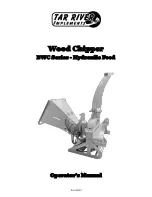
SECTION II : INSTALLATION AND MAINTENANCE
26
The machine must only be lifted up unpacked to remove the pallet
and/or to set it on the ground. First remove the 4 fixing screws. All
handling operations must be carried out with the utmost attention and
care. Do not use this method for lifting or movement operations other
than those described.
To lift the unpacked unit, use non-worn fabric belts with guards for
sharp corners. Harness the machine as shown in Fig. 6, passing the
fabric belts through the specific slots on the base. Tension the belts,
checking that they remain properly attached to the upper edge of the
slot; lift the unit a few centimetres, then, only after checking the stability
of the load, slide the pallet out, taking care not to trap any body parts, in
order to eliminate any possible risk of crushing or any other injury if the
load drops or shifts suddenly. Lower the machine slowly and secure it to
the ground.
Remove the protective film from the panels once the machine has
been installed.
SAFEGUARD THE ENVIRONMENT!
Dispose of the packaging materials in compliance
with the national or local legislation in force in your
country.
DANGER!
Do not leave the packaging within reach of children.
II.4.1 STORAGE
CONDITIONS
The units cannot be stacked. The temperature limits for storage are -
20÷60°C.
II.5 INSTALLATION
INSTRUCTIONS
DANGER!
Installation must only be carried out by skilled
technicians, qualified for working on air
conditioning and refrigeration systems. Incorrect
installation could cause the unit to run badly, with a
consequent deterioration in performance.
DANGER!
The unit must be installed according to national or
local standards in force at the time of installation.
Use protective grilles or other devices to prevent
possible contact should the unit be accessible to
persons younger than 14 years of age. The
documentation for accessories supplied loose
included with each kit.
DANGER!
Do not lean on the thermal exchange coil or corners
of the structure as improper use could cause cuts;
use appropriate personal protective equipment
(gloves, goggles, etc.).
DANGER!
When the outdoor temperature is around zero, the
water normally produced during the coil defrosting
could form ice and make the flooring near the unit
installation area slippery.
If the unit is not fixed to anti-vibration mounts (KSA), once it has been
set on the ground, it must be firmly bolted down to the floor using M10
metric threaded bolts. Slots are provided in the base for this purpose.
II.5.1 INSTALLATION
SITE
REQUIREMENTS
The installation site should be chosen in accordance with the provisions
of Standard EN 378-1 and in keeping with the requirements of Standard
EN 378-3. When selecting the installation site, risks posed by accidental
refrigerant leakage from the unit should also be taken into
consideration.
II.5.2 INDOOR
INSTALLATION
Machines designed forindoor installation must be positioned so as to
prevent any refrigerant gas leakages from spreading inside the building
and posing a hazard to people's health.
If the unit is installed on terraces or building roofs, adequate safety
measures must be taken in order to ensure that any gas leaks cannot
enter the building through ventilation systems, doors or similar
openings.
In the event that the unit is installed inside a walled-in structure (usually
for aesthetic reasons), these structures must be suitably ventilated in
order to prevent the formation of dangerous concentrations of
refrigerant gas.
II.5.3 SPACE, POSITIONING AND CHANNELLING
The unit is envisioned for indoorinstallation. The unit must be installed
in compliance with the minimum recommended technical spaces,
bearing in mind the access to the water and electrical connections. The
unit should be correctly levelled and positioned on a supporting surface
capable of sustaining its full weight. It must not be installed on brackets
or shelves.
To allow the TCCEY and THCEY units to run smoothly it is
recommended not to mix the drawn air with the expelled air, therefore it
is advisable to channel and expel out of the room where the unit is
installed.
Flow channelling must always have constant section equal to the fan
flow section. To prevent vibration transmission, the KRAM kit is
available (outlet anti-vibration fitting) which allows the unit to be
separated from the duct. It is therefore advisable to apply elastic fittings
on the air duct in the points where it passes through the walls of the
room.
The room in which the unit is to be installed must have an opening that
allows the air to be drawn from the outside through a section that is at
least equal to the surface of the finned coil.
The intake can be channelled. The KRAS kit (inlet anti-vibration fitting)
is available to prevent vibration transmission.
Содержание TCCEY 114
Страница 3: ......
















































